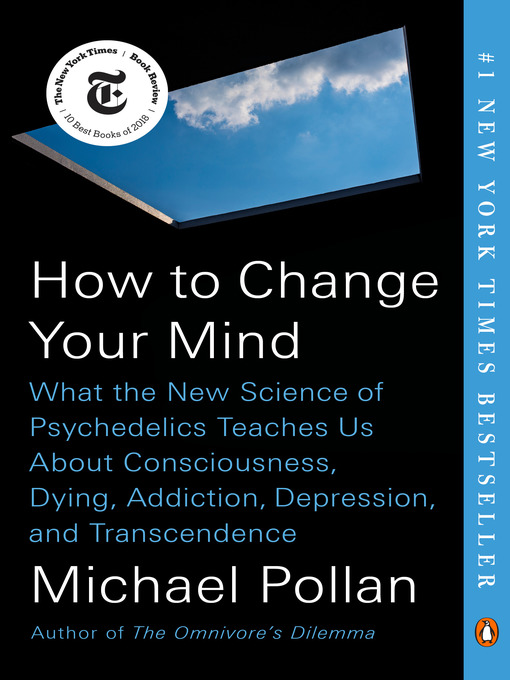
How to Change Your Mind
What the New Science of Psychedelics Teaches Us About Consciousness, Dying, Addiction, Depression, and Transcendence
علم جدید روان شناسان ما را در مورد آگاهی، مردن، اعتیاد، افسردگی و تعالی چه چیزی سرزنش میکند؟
کتاب های مرتبط
- اطلاعات
- نقد و بررسی
- دیدگاه کاربران
نقد و بررسی

December 1, 2017
Before Timothy Leary encouraged Sixties counterculturalists to turn on, tune in, and drop out, scientists and doctors saw LSD and other psychedelics as tremendous new tools for understanding consciousness. Now, these back-burnered drugs are proving effective in treating such disorders as PTSD and depression. New York Timesbest-selling author Pollan even put himself forth as guinea pig.
Copyright 2017 Library Journal, LLC Used with permission.

March 1, 2018
Noted culinary writer Pollan (Cooked: A Natural History of Transformation, 2013, etc.) makes the transition from feeding your body to feeding your head.The lengthy disclaimer on the copyright page speaks volumes. The author, well-known for books on food and life such as The Botany of Desire and The Omnivore's Dilemma, has been opening some of the doors of perception with the aid of lysergic acid, its molecular cousin psilocybin, ayahuasca, and assorted other chemical tools. His journeys are timely, since, "after several decades of suppression and neglect, psychedelics are having a renaissance." For one thing, LSD and its kin have proven potent tools in treating depression, anxiety, addictions, post-traumatic stress, and other ailments. Through the use of neuroimaging technologies that were not available to the pioneers of psychiatric psychedelia, we can see that in interrupting ordinary patterns of thought and helping regroove the brain, these drugs are in fact mind-expanding, as the "hoary 1960s platitude" would have it. Pollan traveled deep into the woods to undertake acid-laced spirit journeys with people who are off the grid, and perhaps a touch off their rockers as well; at the Esalen Institute, he learned the latest from a place that served a historic role in spreading the psychedelic gospel. As Pollan notes, there are risks in unguided forays into the dustier corners of the mind, but the old scare tactics of chromosomal damage and going blind after staring at the sun are just that--though, as he also writes, "once introduced into the culture, these urban legends survive and, on occasion, go on to become 'true.' " The author's evenhanded but generally positive approach shoos away scaremongering while fully recognizing that we're out in the tall grass--and, as he notes, though credited with psychological evenness, he's found himself "tossed in a psychic storm of existential dread so dark and violent that the keel comes off the boat," reason enough to seek chemical aid.A trip well worth taking, eye-opening and even mind-blowing.
COPYRIGHT(2018) Kirkus Reviews, ALL RIGHTS RESERVED.

Starred review from March 12, 2018
Food writer Pollan (Cooked) shifts his focus to other uses of plants in this brilliant history of psychedelics across cultures and generations, the neuroscience of its effects, the revival of research on its potential to heal mental illness—and his own mind-changing trips. For an entire generation, psychedelics were synonymous with Harvard professor-turned-hippie Timothy Leary and his siren call to “turn on, tune in, drop out.” But, Pollan argues, that freewheeling attitude quickly turned into a “full-on moral panic about LSD” that “doomed the first wave of research.” By the 1990s, the body of knowledge about the successful use of LSD to treat alcoholics in the ’50s and ’60s was buried, and medical interest only revived in 2010 with studies on treating cancer anxiety with psilocybin. Pollan writes movingly of one man whose “psychedelic journey had shifted his perspective from a narrow lens trained on the prospect of dying to a renewed focus on how best to live the time left to him.” Today, renewed interest has sent scientists racing ahead with trials of psychedelics to treat addiction and depression, and curious seekers like Pollan into experiments with these substances. This nuanced and sophisticated exploration, which asks big questions about meaning-making and spiritual experience, is thought-provoking and eminently readable. Agent: Amanda Urban, ICM.

























دیدگاه کاربران